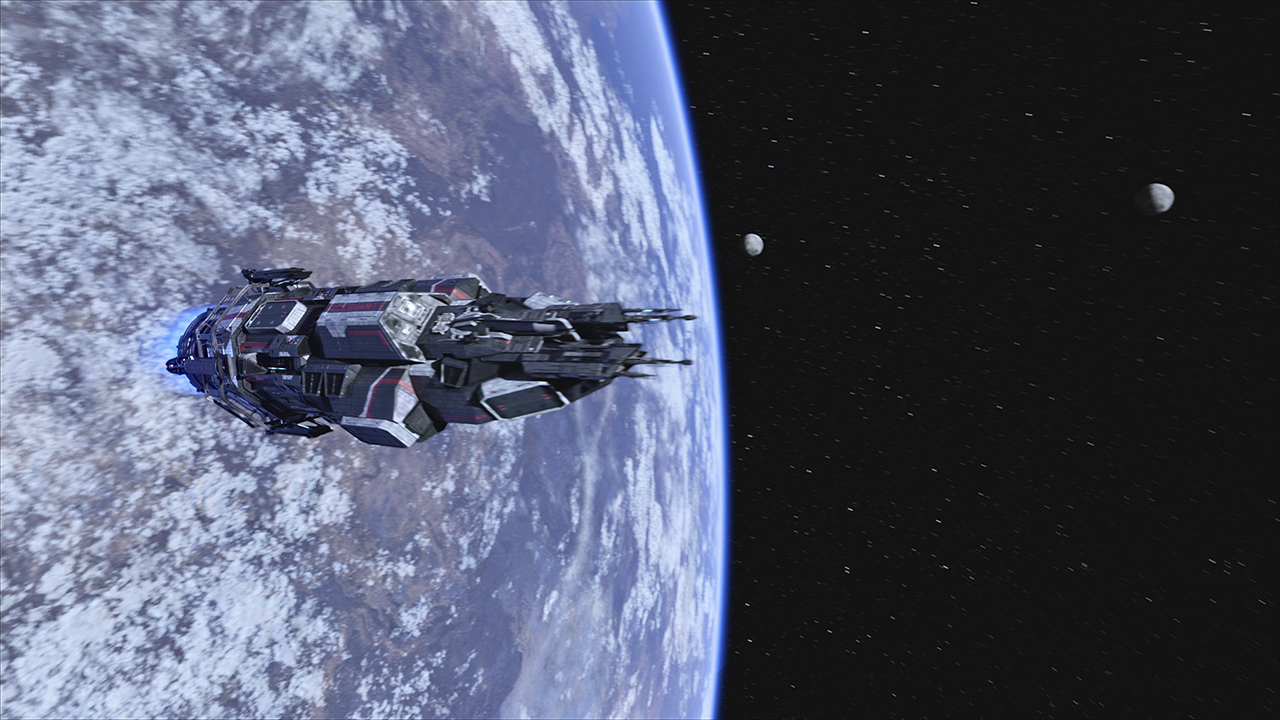So I’ve been a bit behind, but I recently finished with both The Expanse novel series—with Leviathan Falls as the ninth and final book—as well as the sixth and final season of The Expanse TV series on Amazon Prime. I’d say both versions stuck the landing, and in doing so cements itself as a modern sci-fi classic: telling a series of interesting stories, with deep characters, within a vibrant fictional universe. The show, in particular, has unexpectedly high production values and can feel like a long movie that just happens to run for 8 hours per season.
The written works and its live-action counterpart both finished their story arcs within a few weeks of each other; though, surely, not by accident as the authors1 were very involved with the show as well. Each season of the TV show covered about one book’s worth of plot, so as the books went through these natural trilogies—and there turned out to be 3 of them—the TV show was able to keep up season-by-season. The dynamic is remiscient of George R. R. Martin and the A Song of Fire and Ice → Game of Thrones adaption, but to The Expanse‘s credit, the television series never got ahead of the books and the authors made sure to finish their written story, even if their writing did seem to slow down along the way.
I had reviewed The Expanse series back in 2019, and between then and now there’s only been one additional book and 3 additional seasons (which followed books 4–6), so much of the same impressions apply. We can now, though, look at both properties holistically, and upon reflecting on the full runs of both the books and the show, there are a couple of things that stand out.
The books are well-written, but they definitely follow a narrative formula through each novel: start out by introducing new characters for this novel or re-introducing familiar main characters in new situations; set up the novel’s villain; generate some minor wins for our heroes but also some major losses; set up the final confrontation where everyone and everything comes to a head; carve an unlikely but ultimately successful hail mary tactic that carries our heroes to victory. In writing each book with these rails, the authors are able to then introduce brand new characters, advance the world and the scientific and political rules within it, and build on their universe’s details without overwhelming the reader2.
That said, I do think that since the plots start looking similar from afar, that the books had to up the stakes with every subsequent novel to keep things interesting. What started in book 1 as a noir detective story for a missing person becomes interstellar travel and wholly alien planets by books 4 & 5 and by book 9, something that encompasses both our universe and other unknown ones as well. It reminded me a bit of the Three-Body Problem trilogy, in that the only direction the story could take was more epic.
As to the show, it follows the storylines that the books lay out pretty faithfully, but makes some tweaks along the way that I think are smart. They don’t really affect the overarching plot points, but are generally due to the conforming around the natural constraints of running a show—budget, number of characters and actors, the amount of CGI and effects, pacing, etc. A strong character like Avasarala gets comparatively more screen time than the initial plot because her presence and actions themseleves captivate the audience.
But the ever-expanding scope of the series seemed to take a toll on the show. Season 1 was set mostly on a space station; by Season 6, there were multiple planets and warship skirmishes plus alien spaceships and territories. There were more elaborate special effects shots, multiple new factions that needed design and costumes, digital battlefields, etc.—one of the stated reasons why the last season was only 6 episodes instead of the usual 10 episodes was due to the ballooning costs.
Yet, for all those constraints, I still think both properties ended on a high note. The universe of The Expanse is a fascinating one, and with the main story over, I wouldn’t mind seeing additional stories that explore its nooks and crannies3. The way they end is how you’d want stories to end: with a tinge of sadness that there isn’t more to consume, overlaid by a sense of wonderment at all that you just experienced.
The books are authored by James S. A. Corey, which turns out to be a pen name for a pair of collaborators, Daniel Abraham and Ty Franck.↩
Compare the friendly structure to something chaotic like the Machineries of Empire series by Yoon Ha Lee.↩
To be fair, the authors have been writing and releasing novellas along the way.↩




